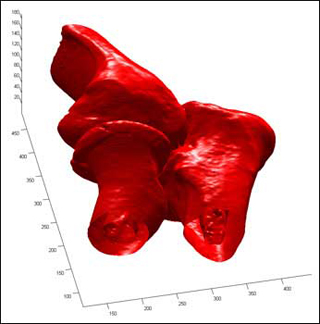Home » Course Layouts » Free Course Layout Udemy
This course presents the fundamentals of digital signal processing with particular emphasis on problems in biomedical research and clinical medicine.
0
1
English
English [CC]
- Learn basic syntax that can apply to any language.
- Learn what is a programming language and the basic concepts for beginners.
- Understand what is Javascript in it's truest form.
- Know the basic syntax of Javascript.
- Know some hidden quirks in Javascript.
Description
It covers principles and algorithms for processing both deterministic and random signals. Topics include data acquisition, imaging, filtering, coding, feature extraction, and modeling. The focus of the course is a series of labs that provide practical experience in processing physiological data, with examples from cardiology, speech processing, and medical imaging. The labs are done in MATLAB® during weekly lab sessions that take place in an electronic classroom. Lectures cover signal processing topics relevant to the lab exercises, as well as background on the biological signals processed in the labs.
Course content
- Introduction to Biomedical Signal and Image Processing Unlimited
- Chapter 1: data acquisition Unlimited
- Chapter 2: digital filters Unlimited
- Slides: Introduction to Clinical Electrocardiography Unlimited
- Reading Unlimited
- Chapter 3: Fourier representation of signals and systems Unlimited
- Chapter 4: the discrete Fourier transform Unlimited
- Chapter 5: sampling in time and frequency Unlimited
- Chapter 6: Z-transforms Unlimited
- Chapter 7: the short-time Fourier transform Unlimited
- Chapter 8: linear prediction Unlimited
- Chapter 9: image processing Unlimited
- Slides for Lec #10 and #11: decision systems Unlimited
- Probability primer Unlimited
- Venn diagrams Unlimited
- Image processing 2 Unlimited
- Decision systems 2 – density estimation Unlimited
- Introduction to medical image segmentation Unlimited
- Slides Unlimited
- Slides Unlimited
- Medical image modalities Unlimited
- Slides for Lec #18 and #19: random signal processing Unlimited
- Chapter 11: random signals – basic properties Unlimited
- Chapter 12: random signals and linear systems Unlimited
- Lecture slides Unlimited
- Chapter 15: blind source separation Unlimited
N.A
- 5 stars0
- 4 stars0
- 3 stars0
- 2 stars0
- 1 stars0
No Reviews found for this course.










